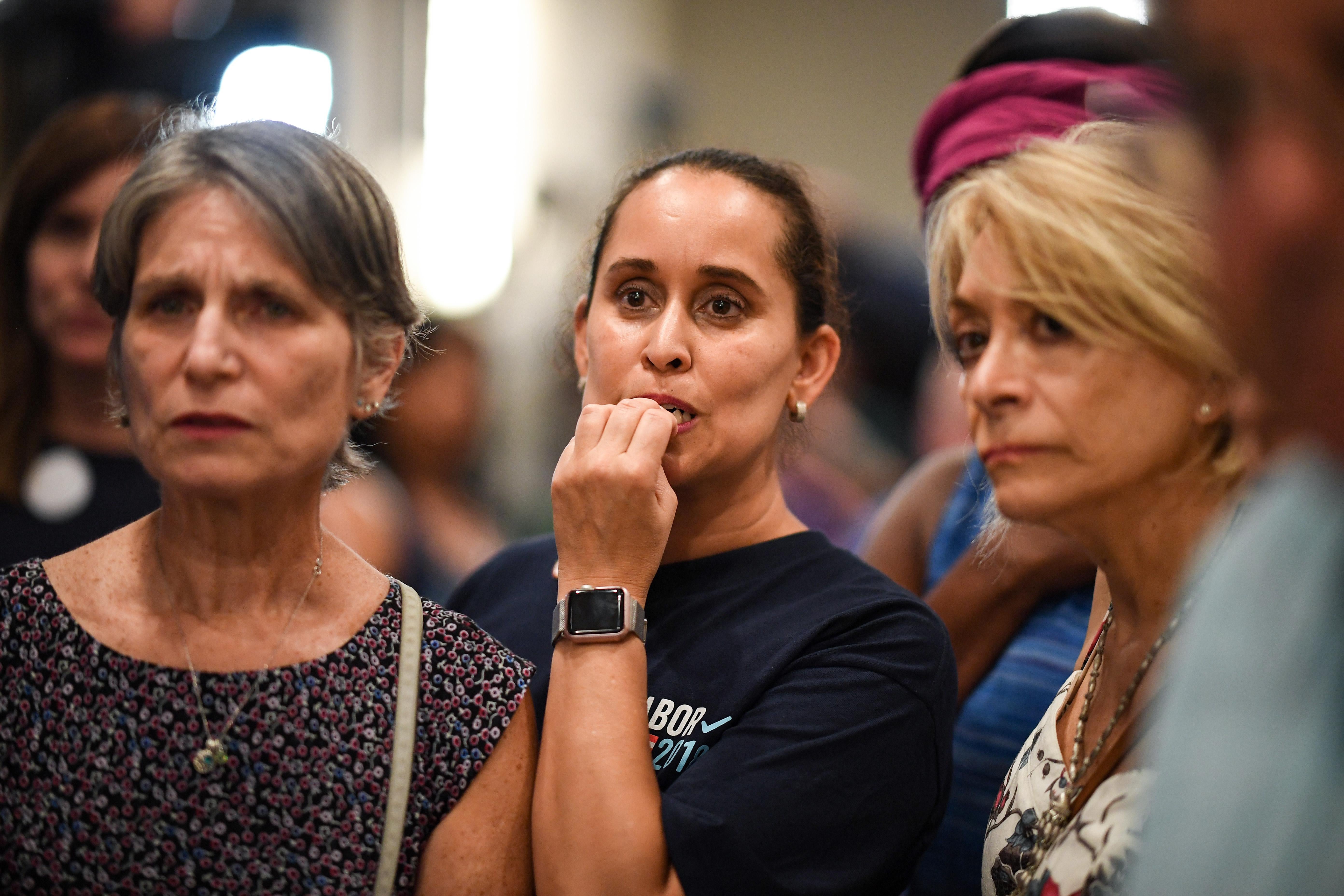This post has been updated with additional information about Broward County’s ballot design.
Florida has retained the championship belt for election shenanigans, as three statewide races could be headed for a recount.
The gap between Rick Scott and Bill Nelson, in the election for the latter’s Senate seat, has only continued to narrow. The race was already within the 0.5 percent margin needed to trigger a recount on Wednesday, when Scott had roughly a 35,000-vote lead. That’s been cut in half to about 17,000 as ballots have continued to come in. While Scott is still the favorite to ultimately win, FiveThirtyEight has shifted the race from “likely Republican” to “lean Republican.”
One reason for hope for Nelson is that a traditionally Democratic area, Broward County, has so far reported fewer votes for the Senate race compared with the gubernatorial race, according to data compiled by MSNBC’s Steve Kornacki. In other Florida counties, no such discrepancy exists. While some of the discrepancy could be due to genuine undervotes—for instance, the design of the ballot may have led some voters to miss it and not vote in that race—it’s possible that the county hasn’t correctly counted all the ballots. About 24,000 ballots in Broward County registered a vote in the governor’s race but not for the Senate race.
The discrepancy with the Senate race tally is consistent down the ballot, with more votes cast in lower-profile races like commissioner of agriculture, chief financial officer, and attorney general than in the Senate race, according to the preliminary county results. As of Thursday afternoon, a total of 675,216 votes had been counted in the Senate race in Broward (466,321 for Nelson and 208,895 for Scott). By comparison, the gubernatorial race had 701,080 cast in Broward, and even the commissioner of agriculture race had 685,440 total votes while the chief financial officer race had 685,017 votes.
Democratic election lawyer Marc Elias told the Sun Sentinel that he thinks the undervotes were due to voting machines not detecting genuine votes. “I am pretty confident what you are going to see are markings that were not picked up by the machines or a calibration issue that was not registering that part of the ballot,” he said.
On Friday, there was more evidence showing that the design of the ballot in Broward County could explain why the Senate race—and thus Nelson—got fewer votes there relative to other races than in the rest of the state. The Sun Sentinel reported, “More than 24,900 Broward residents voted for Florida governor but not for U.S. senator,” and that the pattern of fewer votes in the Senate race than in lower-profile statewide races “appears in no other major Florida county.”
The reason for the vote gap could be that Broward put the Senate race below the instructions for filling out the ballot in the far left column, which violates established best practices for ballot design, according to experts cited by the Sun Sentinel.
The problem could have been exacerbated in congressional districts where a Democrat was running unopposed and was thus not on the ballot, meaning that the Senate race would have been the only race listed in the lower left column. “The largest discrepancies between the governor and Senate votes appear in a group of precincts in southern Broward,” the Sun Sentinel reported, where Democratic Rep. Frederica Wilson was running unopposed and was not on the ballot.
Meanwhile, the count in Florida’s gubernatorial race has also tightened, meaning that there could be an automatic recount there too if it ends up with a margin of less than 0.5 percent. Republican Ron DeSantis now has a 38,515-vote lead, or 0.47 percent. While Gillum conceded late Tuesday night, he said in a statement Thursday that “it has become clear there are many more uncounted ballots than was originally reported” and that the campaign “is monitoring the situation closely and is ready for any outcome, including a state-mandated recount.”
In a third statewide race, Democrat Nikki Fried has eked out a 575-vote lead over Republican Matt Caldwell for agriculture commissioner, a margin well under the 0.5 percent requirement for seeking a recount.
